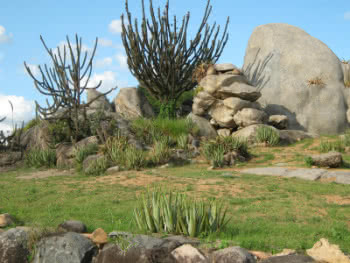THE European Union (EU)is an economic bloc officially created in Europe in 1992 by theMaastrich Treaty, replacing the former European Common Market (ECM). The EU is the main economic bloc in the world, as it has the highest degree of integration among the its members and is, for the most part, made up of important countries belonging to the world. developed.
There are currently a total of twenty-eight member countries of the European Union: Germany, Austria, Belgium, Bulgaria, Cyprus, Croatia, Denmark, Slovakia, Slovenia, Spain, Estonia, Finland, France, Greece, Netherlands, Hungary, Ireland, Italy, Latvia, Lithuania, Luxembourg, Malta, Poland, Portugal, United Kingdom, Czech Republic, Romania and Sweden.
The headquarters of the European Union is located in Belgium, in the city of Brussels.

Image of the headquarters of the European Union in the city of Brussels
Despite having been created in 1992, the origin of the European Union is older. It arose, in fact, from the union of the countries that made up the Benelux (small block formed by Holland, Belgium and Luxembourg) with Germany, Italy and France, forming the ECSC(European Coal and Steel Community). After that, the bloc expanded and gained new members, becoming the European Common Market through the Treaty of Rome, in 1957, which would later become the block we know today.
The characteristics of the European Union, highlighted, are:
* free trade between member countries;
* political integration between countries;
* free movement of people between member countries (something only the EU currently does);
* adoption of a common currency: the euro.
This last feature, however, does not cover all member countries, as there are some nations that have decided not to adopt the euro as their currency, such as England. Thus, the so-called “euro zone” is formed by Germany, Austria, Belgium, Cyprus, Slovakia, Slovenia, Estonia, Finland, France, Ireland, Italy, Luxembourg, Malta, Netherlands, Portugal, Greece and Spain. In the future, Croatia, which has just joined the bloc, will also adopt the euro as its official currency.

Euro, the currency adopted by most members of the European Union
The European Union, moreover, has several institutions in its structure, the most important of which is theEuropean Council, responsible for defining the bloc's political guidelines. Laws are made and modified by the European Parliament (elected by the population every five years), the Council of the EU and the European Commission. There are still a number of other institutions and secretariats, especially the European Central Bank, which is responsible for regulating changes in the euro.
Today, the power of the European Union is not only found in its economic aspect, as its integration also takes place in the political sphere. Therefore, the interests of the European world are always focused on the actions of this bloc, which also becomes an important geopolitical actor in the world today.
By Rodolfo Alves Pena
Graduated in Geography



